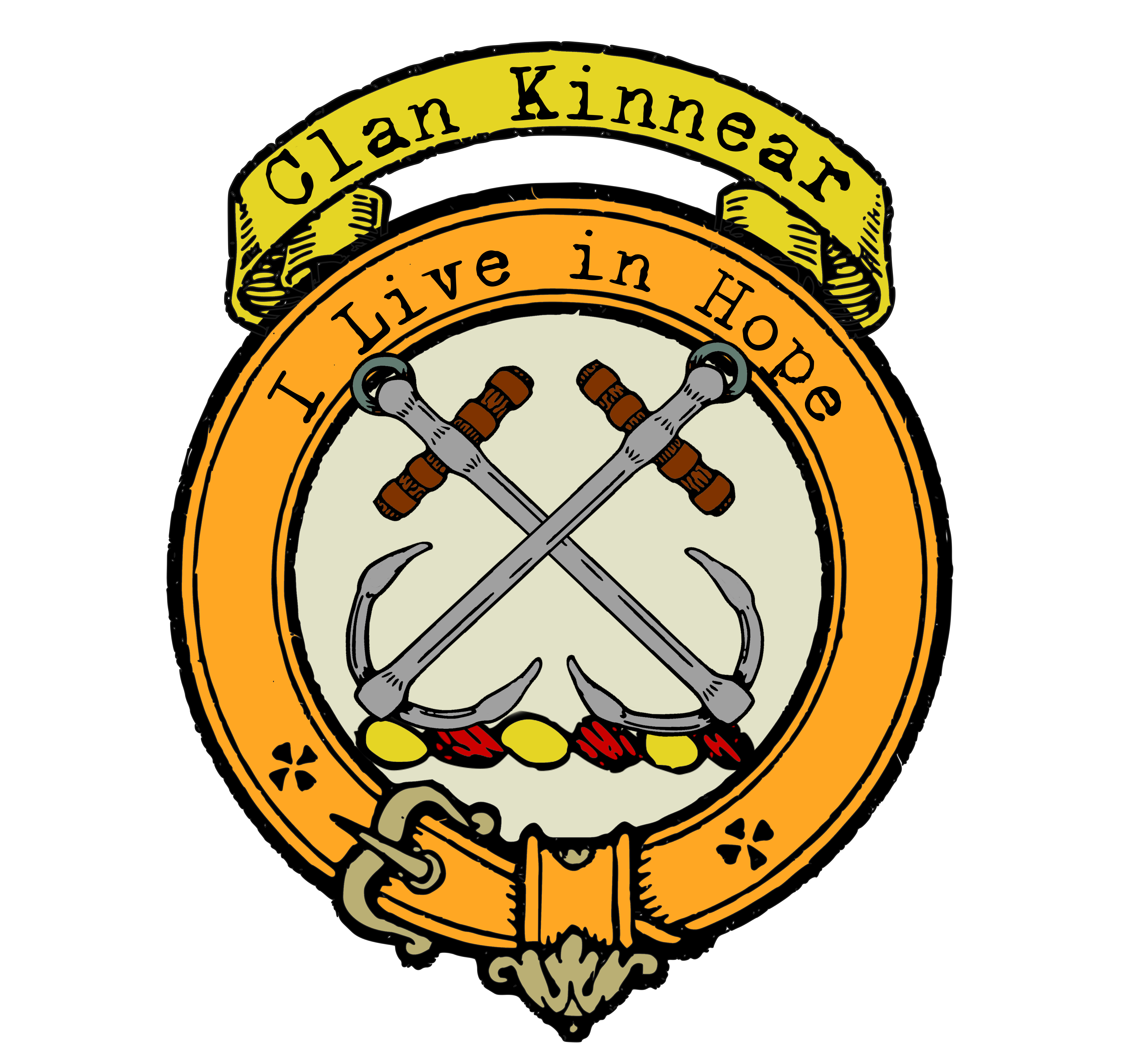Kinnear Clan Crest
|
|
CREST: Two anchors in saltire Proper MOTTO: I live in hope TRANSLATION: N/A VARIATIONS: N/A |
| The origins of the Clan Kinnear can be traced back to the lands near Wormit in the Kingdom of Fife. The name “Kinnear” is believed to have derived from Symon, son of Michael, who generously granted land from his Cathelai holdings to the church of St Andrews. This act of benevolence is said to have occurred prior to 1164, with the grant allegedly confirmed by Malcolm IV, the King of Scotland at the time.
Descendants of Symon adopted the name “Kinnear” as their own, perpetuating their connection to the lands and their enduring legacy. Throughout the centuries, the Clan Kinnear’s prominence grew, and their name appeared in numerous early charters, solidifying their standing within Scottish society. The Clan Kinnear made its mark in various historical events. In 1296, Sir John de Kyner, a notable member of the clan, appears in the Ragman Roll, submitting to Edward I of England. This act of submission was a result of Edward I’s efforts to assert his authority over Scottish nobles during the turbulent times of the Wars of Scottish Independence. The influence of the Clan Kinnear extended beyond military affairs. In 1574, Henry Kinneir of Kinneir was appointed commendator of Balmarion Abbey, showcasing the clan’s involvement in religious matters. Subsequently, John Kinneir of that Ilk was appointed as its Baillie, highlighting the family’s administrative capabilities. Throughout the ages, the Kinnear clan’s impact extended into various professions. Notably, George Kinear, a banker in Edinburgh during the late eighteenth century, left a lasting mark on Scotland’s financial landscape. His son, James Kinnear, continued the family’s legacy as a distinguished lawyer, solidifying the clan’s prominence in the legal sphere. This legal tradition endured into the twentieth century, with subsequent generations proudly bearing the Kinnear name and the family arms, distinguished by a gold border. |
|
Citations:
|
|

Purchase @ Redbubble
Purchase @ Amazon.com
Purchase @ Amazon.co.uk

